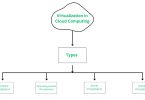Knowledge is the boss. Enterprise and private users tend to generate enormous data sources that they need to store, to get, and to manage them perfectly. It is here that storage and databases have their influence. While both fulfill the duty of data storage, they differ in their functionalities and utilities.
Based on the above, it seems like it is time to explore further the most important distinctions between data storage and databases in order to choose the option which will be the most appropriate in your circumstances.
Storage:
Storage is the devices and mechanisms used for data retention for a long time. Moreover, it serves as the foundation for storing various data types. As far as the storage component is concerned, there are three generally accepted options; HDDs (hard disk drives), SSDs (solid-state drives) and cloud storage services.
Data Organization: Files are usually stored with the distinguishing names of filenames and folders. Location of needed data can involve a quick look through folders or a slower browsing of the file explorer.
Speed and Performance: HDDs have bigger capacities than SSDs but with slower access time. On the other hand, SSDs are faster than HDDs, but they are pricy per gigabyte.
Security: Even though most storage services may provide simple access control features such as passwords, they largely concentrate on storage capacity and affordability with security measures at a lower level.
Scalability: In general, the technology scaling for storage capacity is relatively easy. You can add more drives into your system or consider cloud storage that can be accessed on-demand and stretched beyond the limits.
Database:
It is a software application crafted to store, organize and oversee structured data. It does not just provide the storage but it is designed in a way that it can define the order and structure of data into tables, rows and columns. With this structure, data usage becomes easy, one can manipulate and analyze the data efficiently.
Data Organization: Databases are the perfect tool for the organization of data. They employ a schema to specify data types, interrelations among tables, and constraints to maintain data integrity. This framework enables effective querying through languages such as SQL for retrieving specific information.
Speed and Performance: Usually, getting data from the database is much more efficient than searching through incoherent folders that are not structured. Fast retrieval is possible due to the adoption of quality indexing techniques, which can filter data based on some criteria.
Security: The databases provide strong security mechanisms to restrict unauthorized access, to protect data integrity and avoid impromptu modifications. They provide authentication for users, permissions, and auditing trails to guarantee secure data.
Scalability: Database scaling implies provisioning more storage or cloud-based databases which provide elastic scaling functionalities.
When to Use Storage:
- Storage is the best approach if you want to save large volumes of data that need to be maintained for a long time but are not often accessed. Illustrations include historical documents, backups and media files.
- Storage is the best place to keep stuff that is unstructured like images, audio and video files that are not necessarily organized or analyzed.
- One advantage of storage is that it enables cheap data storage in large quantities, especially when frequent access is not a big concern.
When to Use a Database:
- Database always takes the lead when you have to organize and maintain structured data with intricate relationships, such as customer information, financial records or product catalogs.
- The databases make it easy and fast to query the data by SQL or other query languages, thereby, they are suitable for applications that are used for data analysis and reports on a regular basis.
- The databases provide large‑scale security features, such as access control, data integrity, and data protection.
In Conclusion:
There is a misconception that storage and database are two distinct entities. Businesses tend to work on the application of both of these approaches. Having a clear grasp of the key functionalities and best applications of each technology equips you to choose wisely between different data storage and management tools. Do you require large volumes of unstructured data for a long period of time or do you want to archive it for the long term? Choose storage. Need to organize, manage, and analyze structured data efficiently and securely? Choose a database.
By selecting the right tool for the job, you can ensure your data is stored securely, retrieved efficiently and readily available to fuel your business needs and decision-making processes.






Leave a Comment